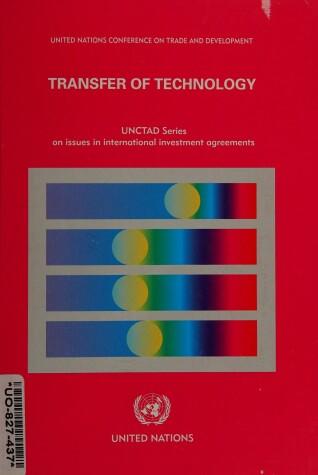UNCTAD Series on Issues in International Investment Agreements
19 total works
Social Responsibility
by United Nations: Conference on Trade and Development
Host Country Operational Measures
by United Nations: Conference on Trade and Development
Admission and Establishment
by United Nations: Conference on Trade and Development
International Investment Agreements
by United Nations: Conference on Trade and Development
Fair and Equitable Treatment
by United Nations: Conference on Trade and Development
Trends in International Investment Agreements
by United Nations: Conference on Trade and Development
Scope and Definition
by United Nations: Conference on Trade and Development
Foreign Direct Investment and Development
by United Nations: Conference on Trade and Development
Investment-related Trade Measures
by United Nations: Conference on Trade and Development
Most-favoured Nation Treatment
by United Nations: Conference on Trade and Development




